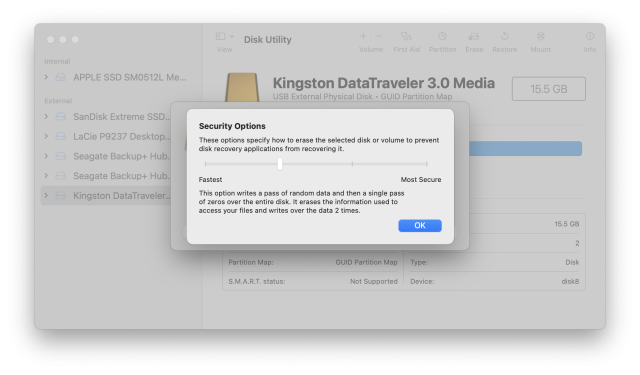
Losing data can be a frustrating experience, especially if it’s important files or documents. If you’re using a Mac, there are certain things that you can do to minimize the chances of data loss. However, accidents happen, and sometimes data is lost regardless of precautions taken. If this happens to you, don’t worry!
Data Recovery Software for Mac programs can help get your files back. This blog post will discuss the seven most common reasons for Mac data loss.
Let’s take a look at them.
Reasons For Data Loss
1. Physical Issues

One of the most common reasons for data loss is physical issues with your computer. This can include anything from a fried motherboard to a simple hard drive failure. Physical damage can mainly occur from things like water damage or dropped laptops. However, having a backup is always the best course of action.
Further, in case of physical damage, you need help of a professional data recovery service provider, who are well equipped with all the tools & techniques to take out all your data from that physically damaged drive.
To repair physically damaged drive & to recover all your data back, your drive must needed a special treatment. These type of drives needs to be opened in class 100 clean room only which is specially designed to perform data recovery on physically damaged drives.
2. Electronic Issues
Another common reason for data loss on Mac is electronic issues. This can include anything from a faulty hard drive to problems with the computer’s motherboard. You should check the user manual, before sticking your fingers anywhere near the faulty electronics. Data recovery software for mac can often help in these situations, but it is always best to consult with a professional before proceeding. Electronic issues are often the most difficult to diagnose and repair, so it is important to be sure that you have a professional. Moreover, data recovery can be very expensive, so it is important to make sure that you have considered all of your options before proceeding.
3. Logical Issues

The most common type of data loss is logical issues. Logical damage or logical errors are like drive corruption, accidental formatting of drive, lost partitions or unresponsiveness of drive. This is the issue where the files are still on your hard drive, but the computer can’t find them for some reason. The most common reason for this is accidental deletion. People often accidentally delete files when trying to clear up space on their hard drive or accidentally hit the wrong key and delete a file or folder.
If you lost your data due to logical error then there are 99% chances that your data can be recover easily with the help of a data recovery software. Here, we recommend Stellar Data Recovery as one of the most trusted & reliable data recovery software, that helps users to recover their lost or deleted valuable data in just few easy steps. All you need is to download data recovery software from Stellarinfo & run a scan on your drive & you may get back all your data.
4. Human Error
Human errors are among the most common reasons for data loss in Mac. This can be anything from accidentally deleting a file to spilling water on your laptop. Whatever the cause, it’s important to have a backup plan in place so you can recover your lost data. There are a few ways to backup your data, including using an external hard drive or cloud storage service. Whichever method you choose, make sure you do it regularly, so you always have a recent copy of your files.
Another way to reduce the risk of human error is to use data recovery software for Macs. This type of software can help you recover lost or deleted files, even if they’ve been emptied from the trash. Data recovery software is a lifesaver for data loss, so it’s worth investing in.
5. Formatting of a Wrong External Drive

One of the most common ways people lose data is by formatting their external drive incorrectly. If you have an external drive that you’re using for time machine backups, make sure you format it correctly as a Mac OS Extended drive. Otherwise, you will not be able to access your backup files and will likely lose all of your data. Time Machine is a great way to backup your Mac, but it’s not foolproof.
If you don’t have a recent backup, you may be out of luck. If you accidentally delete a file or folder, it’s also gone forever unless you have a backup. Even if you have a trash can on your desktop, emptied files are usually permanently deleted and cannot be recovered.
6. Improper Drive Ejection
One of the most common reasons for data loss on Mac is improper drive ejection. When you eject a drive without using the proper method, it can cause the drive to become corrupted. This can lead to data loss and even physical damage to the drive. To avoid this, always use the “Safely Remove Hardware” feature in your operating system before ejecting any external drives.
The improper ejection of a drive can also occur when you remove the drive from your computer without first unmounting it. This can cause data corruption and data loss.
7. Secure Wiping of Disk

One of the most common reasons for data loss on Mac is due to the secure wiping of disks. When you format or delete a file, it doesn’t actually disappear from your computer. The space that the file occupied is simply marked as free and can be overwritten by new data. However, if you use a secure wiping tool like Data Rescue, the old data will be overwritten and cannot be recovered. It is also important to note that when you empty the trash, the data is not actually deleted from your computer. The space is simply marked as free and can be overwritten by new data.
If you want to truly delete data from your Mac, you need to use a secure wiping tool for Data Rescue. The tool will overwrite the old data and make it unrecoverable.
The Bottom Line
Data loss is a serious problem, regardless of what platform you’re using. Whether it’s due to accidental deletion, hardware failure, or software corruption, the end result is always the same: you’re left without your important files. While there are several ways to protect yourself from data loss (like backing up regularly), sometimes it’s just not enough. If you find yourself in the unfortunate situation of dealing with lost data, don’t despair.







